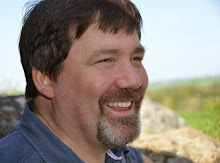With the Catholic and Protestant Christmas celebrations at hand, it may be a timely occasion to consider the different responses to Christmas that third stream Christian groups have adopted over the centuries.
221 AD is the earliest proven year when we know that December 25th was widely advocated as marking Christ's birth, though it was not particularly an occasion for feasting or celebration. Tertullian (referred to elsewhere for his support of Montanism) makes no reference to it while Origen (hardly a third stream leader) denounced the idea, claiming that only sinners not saints celebrated birthdays.
During the Reformation, many Protestants avoided Christmas celebrations along with statues, incense and other Catholic rituals. Oliver Cromwell's government banned Christmas for 12 years, starting in 1647. A similar law existed in
The idea of a "church year" with certain special dates and celebrations was largely absent from Mennonite thought by the time it had transplanted to the United States, although some European Mennonites did pay more attention to the holidays of the church year. Christmas Day was rarely observed until the 20th century among such groups.
The Old Order Amish followed a somewhat different pattern. January 6th was their "Alt Christtag" (Old Christmas) marked in addition to 25 December. They celebrated this day with fasting, (i.e. omitting breakfast) but without church services, and followed by visiting relatives and friends.
The use of the Christmas trees in connection with the Christmas season was rejected by more conservative third stream groups. It was seen as a pagan symbol, out of place among Christians.
Most European Mennonites continued to observe Christmas with a church service and the following day (Boxing Day in
As the practice of gift-giving at Christmas only became widespread in the mid-19th century following the publication of Charles Dickens' A Christmas Carol, we ought not to be surprised to find it largely absent from third stream Christian groups before this period.
On a more contemporary note, it is interesting to reflect on the fact that some of the "new churches" that emerged in the 1970s and 1980s in the
A Mennonite group from

No comments:
Post a Comment